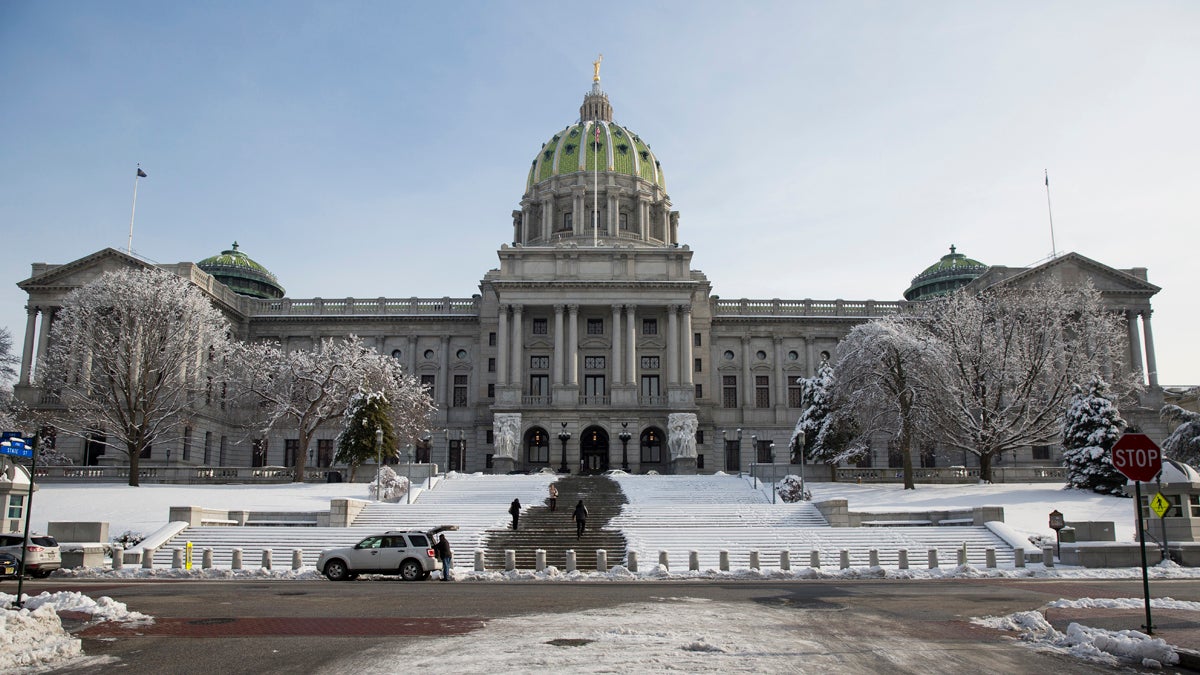Pennsylvania revenue collection in flux due to new federal tax law
Spurred by changes in the federal tax law, Pennsylvanians seem to have rushed to pay state income taxes early in hopes of taking advantage of uncapped deductions

File photo: Pennsylvania state capitol building on Tuesday, Feb. 4, 2014, in Harrisburg, Pa. (Matt Rourke/AP Photo, file)
Spurred by changes in the federal tax law, Pennsylvania business owners seem to have rushed to pay their state income taxes early in hopes of taking advantage of uncapped deductions on their 2017 federal returns.
Matthew Knittel, director of the Pennsylvania Independent Fiscal Office, says the commonwealth’s general fund revenue through the first half of the fiscal year came in $95 million above projections, a difference of 0.7 percent.
He said the biggest increase had to do with business owners and those with capital gains paying taxes at the end of 2017 what would normally be due this month.
“Individuals, due to the federal tax reform and the state and local deduction, paid their taxes a little earlier than they usually do. So we think some of the money we would have received in January was remitted in December of this year,” he said.
The IFO expects its overall revenue expectations will even out over time.
The new tax law caps all state and local tax deductions at $10,000 starting in 2018.
At the local level, some homeowners in the state rushed to prepay 2018’s property taxes before the new year in an attempt to draw a larger 2017 deduction before the cap is put in place. In Pennsylvania, certain counties and municipalities allow those prepayments; others don’t.
But even those who successfully made payments, could be in for a reversal. Last week, the Internal Revenue Service released a memo saying that homeowners could only prepay 2018 taxes for properties that were assessed in 2017, opening up the possibility that local governments could need to make refunds.
The IFO found that the new tax law also led to anticipated revenue shortfalls. Knittel noted that anticipated revenue from state corporate income taxes took a blow in December, down 3.3 percent.
“In the month of December, corporations are scheduled to make a payment, and that payment is considerably weaker than we have thought,” he said.
He believes businesses are holding off payments to take full advantage of the new tax law.
“Because of federal rate reductions, corporations are shifting income from this year in order to apply it under a lower rate in 2018,” he said.
WHYY is your source for fact-based, in-depth journalism and information. As a nonprofit organization, we rely on financial support from readers like you. Please give today.





